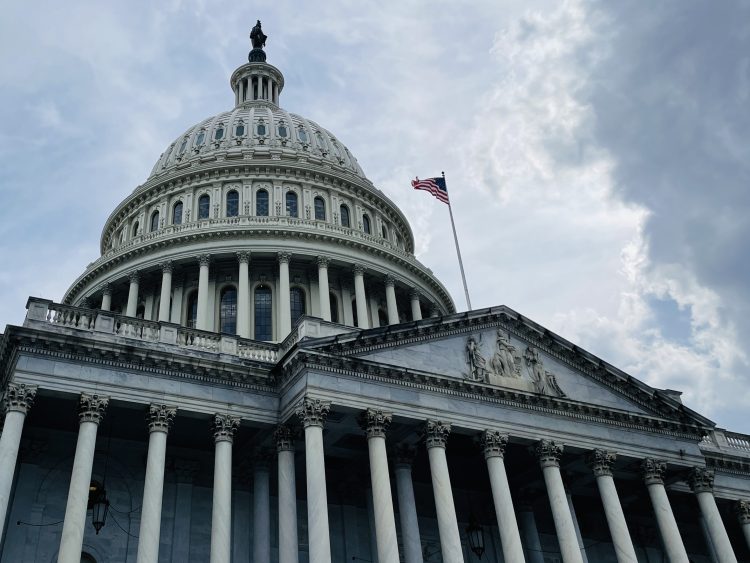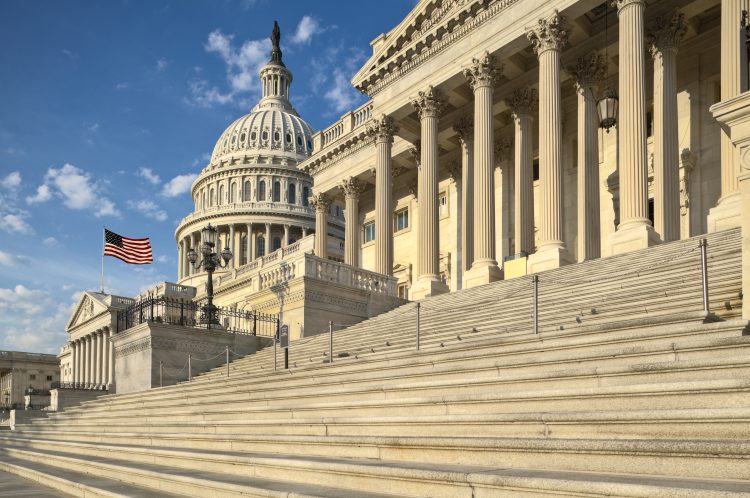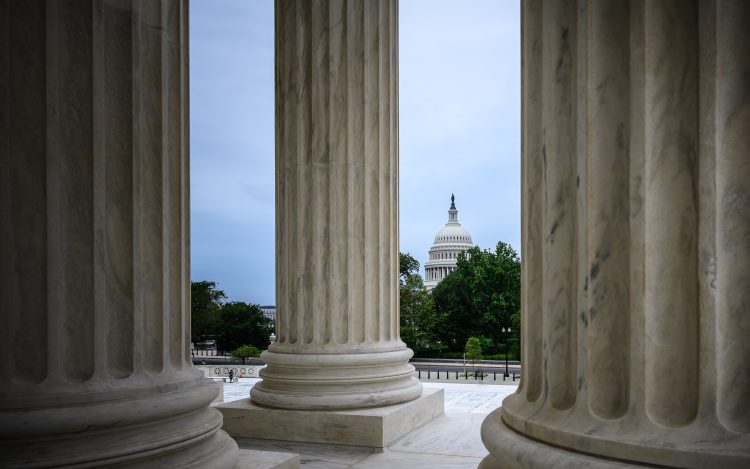In a decision that could signal trouble ahead for the Trump Administration’s efforts to exert more authority over Congressional spending priorities, the Government Accountability Office (GAO) concluded last week that the Department of Transportation (DOT) violated the Impoundment and Control Act (ICA) when it withheld funds for the National Electric Vehicle Infrastructure program (NEVI).
The NEVI is a formula grant program established in the Infrastructure Investment and Jobs Act (IIJA) of 2021 to “provide funding to States to strategically deploy electric vehicle charging infrastructure and to establish an interconnected network to facilitate data collection, access, and reliability.”
Congress appropriated $5 billion for the NEVI program of which $1 billion was made available for each fiscal year from 2022 through 2026. Funds have been apportioned by the Federal Highway Administration (FHWA) and paid to the states through a statutory formula.
In an Executive Order dated January 20, 2025, President Trump ordered that, “All agencies shall immediately pause the disbursement of funds appropriated through…the Infrastructure Investment and Jobs Act, including but not limited to funds for electric vehicle charging stations made available through the national Electric Vehicle Infrastructure Formulas Program.”
On February 6, 2025, the FHWA issued a spending freeze on new obligations for the program while allowing existing projects to continue. The FHWA’s letter to state transportation directors cited DOT’s desire to “review the policies underlying the implementation of the NEVI Formula Program,” and said it was updating the formula guidance “to align with current DOT policy and priorities.”
The GAO, which has a responsibility under the ICA to investigate and report to Congress on any improper withholding of funds, concluded that the Administration’s actions “violated the ICA by delaying expenditures for the [NEVI] program.”
In reaching this conclusion, GAO reviewed the constitutional context stating, “The Constitution specifically vests Congress with the power of the purse, providing that ‘No Money shall be drawn from the treasury, but in Consequence of Appropriations made by law.’”
It is the president’s constitutional duty, GAO said, to faithfully execute the law as Congress enacts it. “An appropriations act,” said GAO “is a law like any other; therefore, unless Congress has enacted a law providing otherwise, the President must take care to ensure that appropriations are prudently obligated during their period of availability.”
Under the Constitution, the president has no “unilateral authority to withhold funds from obligation,” GAO said. “Instead, Congress has vested the President with strictly circumscribed authority to impound, or withhold, budget authority only in limited circumstances as expressly provided in the ICA.”
The unilateral withholding of appropriated funds for the NEVI program did not fit any of those limited circumstances, GAO found. For example, the president did not request a rescission of the funds from Congress, as he is authorized to do under the ICA. Moreover, a temporary deferral of funds was not lawful in this case, GAO said, because the “IIJA constitutes a mandate to provide amounts appropriated for the NEVI Formula Program to the states,” and thus fits within an exemption from potential ICA deferrals.
The Administration argued that the withholding of funds in this case was not a “deferral” under the terms of the ICA, but a “programmatic delay.” The GAO acknowledged that “when an agency is taking reasonable and necessary steps to implement a program or activity, but the obligation or expenditure of funds is unavoidably delayed, such action constitutes a programmatic delay and is not an impoundment, as defined by the ICA.”
In this case, however, GAO found that the delay was not because the DOT was attempting to comply with the statute but because it was “imposing requirements on the program that are not contemplated by the IIJA.”
The Administration is not without remedies, GAO concluded. “If DOT wishes to make changes to the obligation and expenditure of funds appropriated under the NEVI Formula Program, it must propose funds for rescission or otherwise propose legislation to make changes to the law for consideration by Congress.”
It added that, “Our analysis and conclusions regarding the NEVI Formula Program help ensure compliance with the ICA and appropriations law; we do not take a position on the policy goals of the program and this is not to be interpreted as taking a position on the underlying policies entailed.”
While the GAO’s decision in this case is nonbinding, the ICA specifically empowers the United States Comptroller General to bring suit in federal court seeking the release of funds that have been wrongfully impounded.
In response to the GAO’s decision, Russell Vought, Director of the President’s Office of Management and Budget (OMB), wrote on social media that, “They are going to call everything an impoundment because they want to grind our work to manage taxpayer dollars effectively to a halt. These are non-events with no consequence. Rearview mirror stuff.”
Whether GAO’s action is in the rearview mirror may depend on further developments in this and other cases. The Administration’s withholding of NEVI funding has also been challenged in court by a number of states. Comptroller General Gene Dodaro, who heads GAO, testified before the Senate Appropriations Committee that as of April 29, 2025 he was looking into 39 instances of possible ICA violations.
Meanwhile, the Ranking Members of the House and Senate Appropriations Committees have alleged that the Trump Administration has improperly frozen $430 billion of congressionally approved funding.
For his part, Vought has been quite open about his belief that the ICA is an unconstitutional restriction on presidential power and OMB’s General Counsel, Mark Paoletta, has written that GAO’s enforcement role under the ICA is “a constitutionally monstrous mechanism.”
It seems that the tug of war over the power of the purse is just beginning.
Continue Reading












